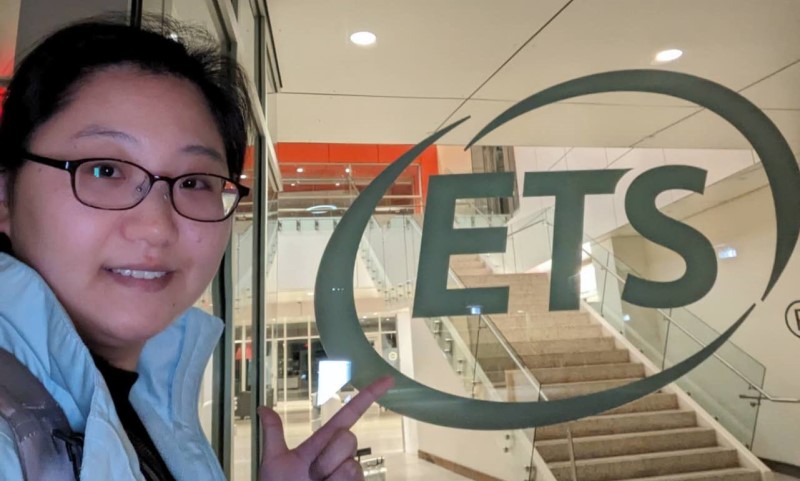News
Give my doctoral thesis more depth and relevance
[08.02.2024]How can argumentative essays be evaluated automatically? Doctoral student Yuning Ding is devoting her research to these questions. She recently traveled to Princeton to work with experts from ETS. Let's take a look at Yuning at our leisure.
 Photo: Privat
Photo: Privat
How can argumentative essays be evaluated automatically? Doctoral student Yuning Ding is devoting her research to these questions. She recently traveled to Princeton to work with experts from ETS. Let's take a look at Yuning at our leisure.
Yuning Ding is a doctoral student at CATALPA. As part of her doctoral thesis in the field of computational linguistics, she is researching how AI systems can support students in writing essays, term papers and theses. She is focusing on automatic scoring - i.e. automatic assessment that gives students formative feedback on various areas. "Teachers' resources are simply limited and sometimes it is not possible to give individual and specific feedback on numerous essays in everyday teaching. This is where automation can make an important contribution in the future in order to support learners more individually," explains the young researcher.
Last year, she traveled to Princeton, USA, for a research stay of several months. There she researched the cohesion of argumentative essays together with experts from ETS. This is a field that has so far received little attention in research on automatic scoring. The particular challenge: the computer has to learn about the entire text in order to evaluate the cohesion of sentences and not look at subsections separately. When evaluating details such as spelling or grammar, for example, the AI only needs to understand the semantics. Automatic scoring is less complex. "This is exactly where my research stay in Princeton was important. I was able to access resources from ETS, exchange ideas with experts who deal with precisely these topics there and thus give my doctoral thesis more depth and relevance," reports Yuning.
What is ETS?
The Educational Testing Service (ETS) is a non-profit company based in the USA. It specializes in standardized testing procedures in the education sector. ETS is the global market leader in the so-called "testing industry". The best-known tests offered by ETS are the TOEFL English test and the SAT study aptitude test.
The collaboration continues
And the collaboration continues. The stay resulted in a jointly written scientific paper, which is currently still in the peer review phase. "I am currently continuing to work on this publication with ETS. There are also plans to collaborate on my second research focus, which is about recognizing and evaluating text structures - for example, introduction, argument, counterargument and conclusion. We could perhaps use this technology in the future to help students write better theses," explains Yuning Ding.
Not only academically, but also personally, the stay abroad was an enrichment for the doctoral student. "There was a lot to organize beforehand, for example. It started with the application for the visitor program at ETS, continued with the visa and DAAD scholarship and ended with the organization of travel and accommodation," Yuning tells us. "And if you're already complaining about Deutsche Bahn here, for example, then it's better not to even try the public transportation system in the USA," she adds with a laugh.
Best Video Award
If you want to learn more about Yuning Ding and her research work, she explains her field in a humorous way in this video. The video was created in connection with the submission of a paper and received the "Best Video Recording Award" at ACL 2023 (The 61st Annual Meeting of the Association for Computational Linguistics). Yuning won this award as one of five out of about 780 papers.

